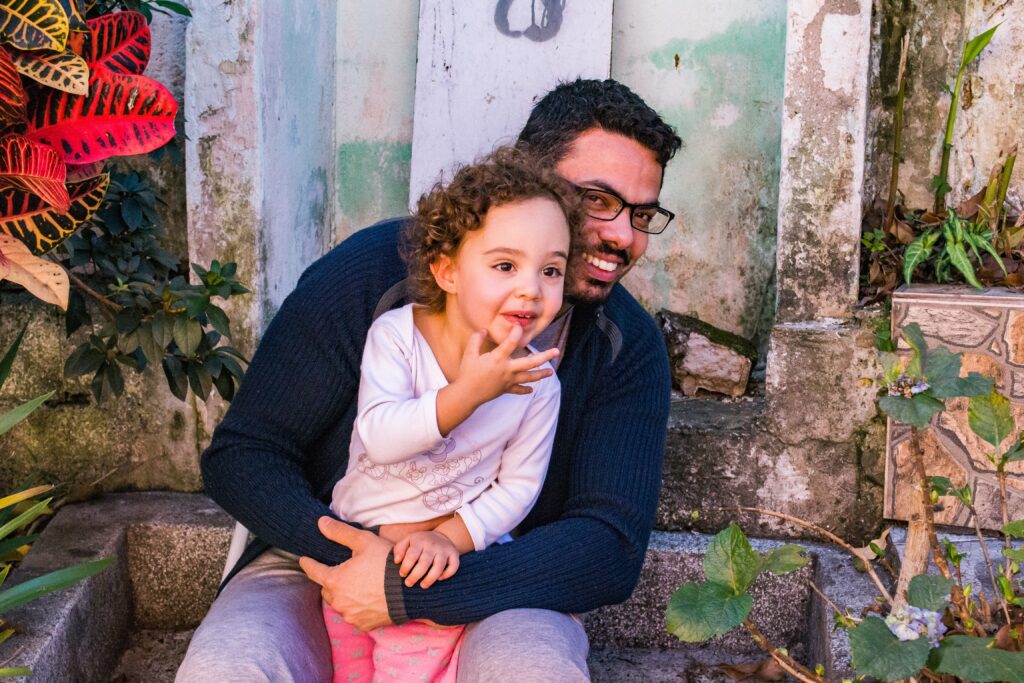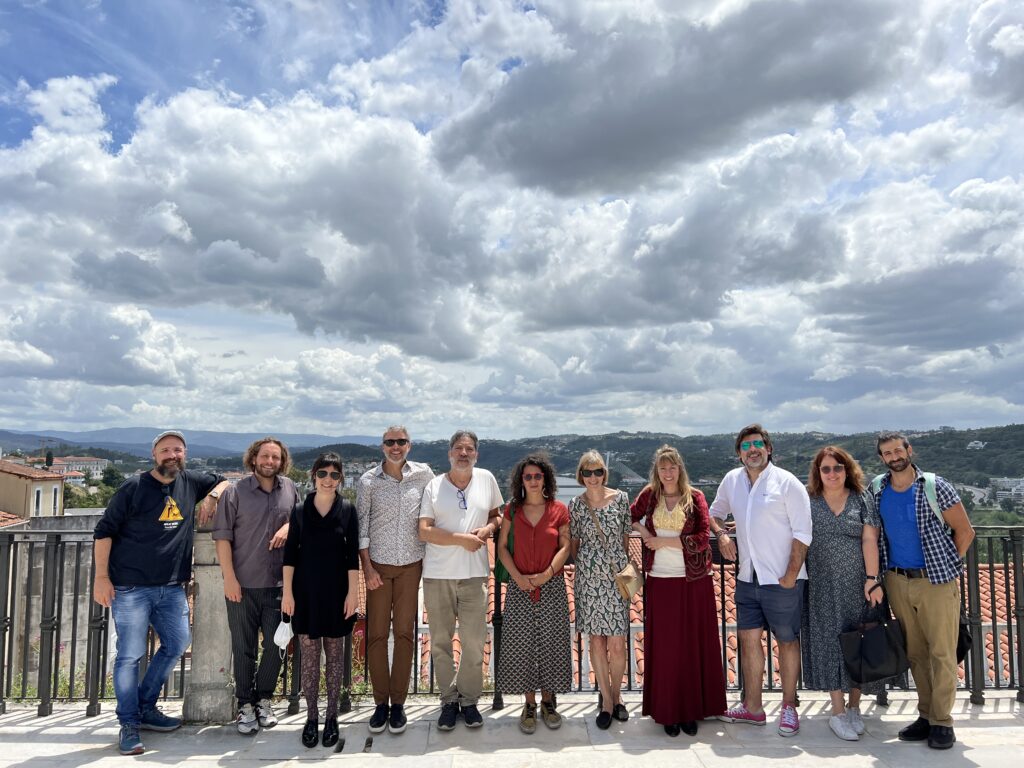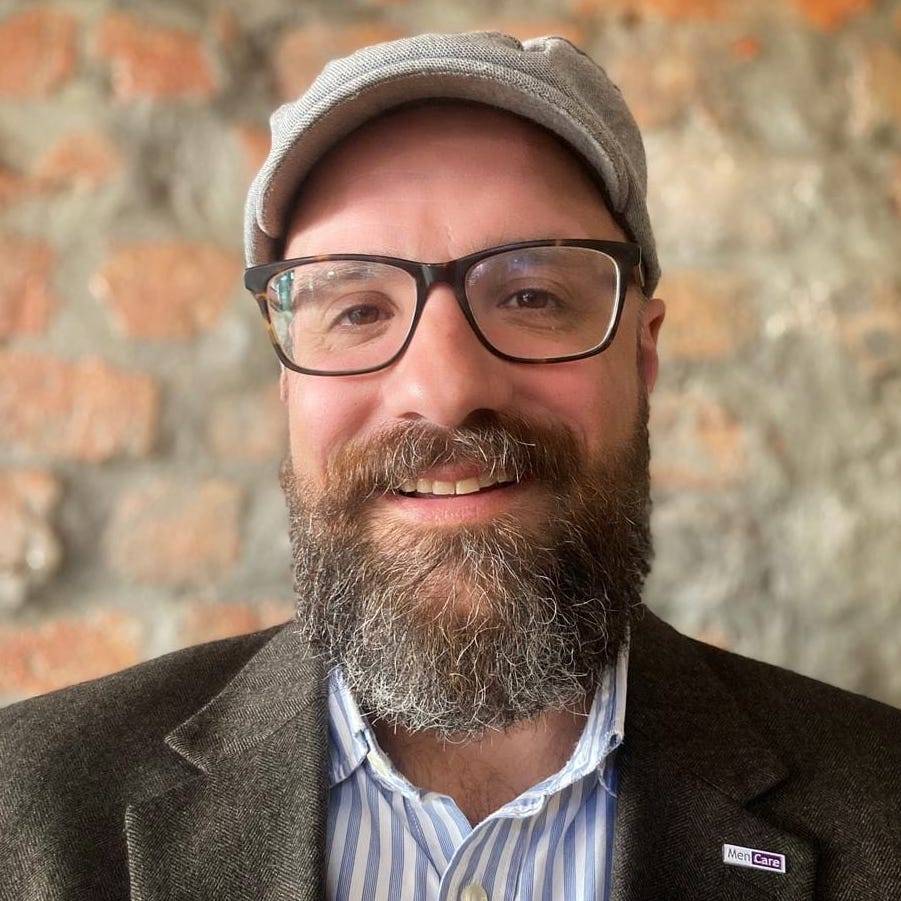
Coming out of a 10-year internal review of the MenCare Campaign, the global co-coordinators, Equimundo: Center for Masculinities and Social Justice and Sonke Gender Justice, are seeking to shift the campaign’s work to address some of the concerns raised in the review.
In June 2022, several MenCare partner organizations convened in Coimbra, Portugal. At this convening, participants discussed the governance of the campaign, and suggested that the new structure includes the following groups:
- MenCare Partners: MenCare Partners are organizations that sign on with the MenCare campaign as partners based on alignment with the guiding principles of the MenCare campaign. Partners can be national or international. This group is the largest, is distributed across many (55+) countries and has previously been referred to as MenCare members or affiliates.
- MenCare Partner Council: MenCare Partners can become members of the MenCare Partner Council. Members of the partner council will benefit from the global and regional platform that MenCare offers and will provide strategic support as council members to strengthen the MenCare campaign. New partner council members are nominated by sitting council members and invited with council consensus agreement. The first partner council consists of key MenCare partners who have been actively involved in the campaign for a number of years.
- MenCare Global Coordination team: The global coordination team is responsible for coordinating the overall campaign, partnerships, facilitating partner council meetings and processes, and ensuring the implementation of the relevant MenCare Global Strategic Plan. The coordination team consists of two global co-coordinating organizations (Equimundo and Sonke) and a MenCare Officer employed by Equimundo. The MenCare Global Coordination team is responsible for the overall management and running of the campaign. At times senior management from co-coordinators may join strategic coordination meetings.
Much of the conversation from the meeting focused on the values that should inform the new governing structures. In addition to the values agreed upon in the MenCare Guiding Principles the group also recognised the importance of the following values to anchor the new partner council:
- Reciprocity: Partner council membership will be a two-way reciprocal relationship. The MenCare Global Coordination team will add value to partner council member’s initiatives, and members of the partner council will add value to the overall campaign. This arrangement is a win-win regarding mutually beneficial partnership with members of the council.
- Intersectionality: The MenCare Global Coordination Team will aim to improve engagement with diverse and often less represented groups (e.g., local and national women’s groups; migrant or displaced groups; LGBTIQ+ and SOGIESC collectives and groups; and a diversity of countries) with support from the partner council.
- ‘Do no harm’ principle and country specificity: While country contexts mean it might sometimes be difficult to speak about gender transformative work overtly, organizational commitment by council members towards the guiding principles of MenCare would still be expected. That does not necessarily dictate that it must be obvious in the work of the partner council members. Decisions would rely on a culturally relevant context analysis with/by members and adherence to the ‘Do No Harm’ principle. This principle has supported how we work in practice within complex contexts. It has been and will be necessary for all those associated with MenCare (MenCare Partners, MenCare Partner Council members, and MenCare Global Coordination Team) to be aware of the local context and constantly adapt accordingly. The previous standard of in principle agreement with the campaign values, and no investment in activities that run counter to the campaign values, will stay relevant.
We are now working with the current Steering Committee, and potential new Partner Council members to finalize the relevant letters of agreement, and we hope to announce the new members of the council in the next MenCare newsletter.
Partner council members are also involved in promoting the MenCare 50/50 commitment as we engage with new institutional partners that sign on to the commitment.
Welcoming Wessel van den Berg as MenCare Officer
We are thrilled to welcome Wessel van den Berg, co-founder of the MenCare Global Fatherhood Campaign and the State of South Africa’s Fathers report series, as the first MenCare Officer.
Wessel brings two decades of experience in working on issues of gender equality and almost 18 years of experience of working with boys and men. He received his PhD in Sociology and holds a Masters in Sustainable development from Stellenbosch University. It is a delight to have Wessel on board!
Looking ahead to State of the World’s Fathers 2023
The upcoming State of the World’s Fathers 2023 will shine a light on the expanding definition of what it means to be a caring human and the positive outcomes of being a caring human on oneself, on relationships, and on the community. With the pandemic, the caregiving roles that women and men inhabit was brought to the forefront. Although many men stepped up the amount they did, studies highlighted that women and girls, who already did more unpaid care and domestic work than men in every country in the world, were now doing even more. It is noteworthy that with the pandemic, there is an increase in public discourse about care—care for self, care for children, care for parents, care for communities, and care for public health. In this unique and perhaps shifting context, it’s critical to think about what men and women and people of all genders believe “caregiving” to encompass. In crucial studies on men and masculinities, the notion of caring masculinities has been posited by theorists. Knowing what we know about men’s caregiving, it is apparent that men’s care beyond the care of young children and infants (the period generally covered by paternity leave) has become urgent – including: men’s care of children beyond the early years, their spouse/partner, men’s care of elderly family members, the community, the environment, self, and the national and political context.
The upcoming State of the World’s Fathers 2023 will shine a light on caregiving and the positive outcomes of being a caring human on oneself, on relationships, and on the community. During the pandemic, the caregiving roles held by women and men were brought to the forefront; although men stepped up, women continued to do more care work than men in every country in the world. The pandemic increased public discourse about care, including discussions about the urgency of men’s involvement in caregiving.

